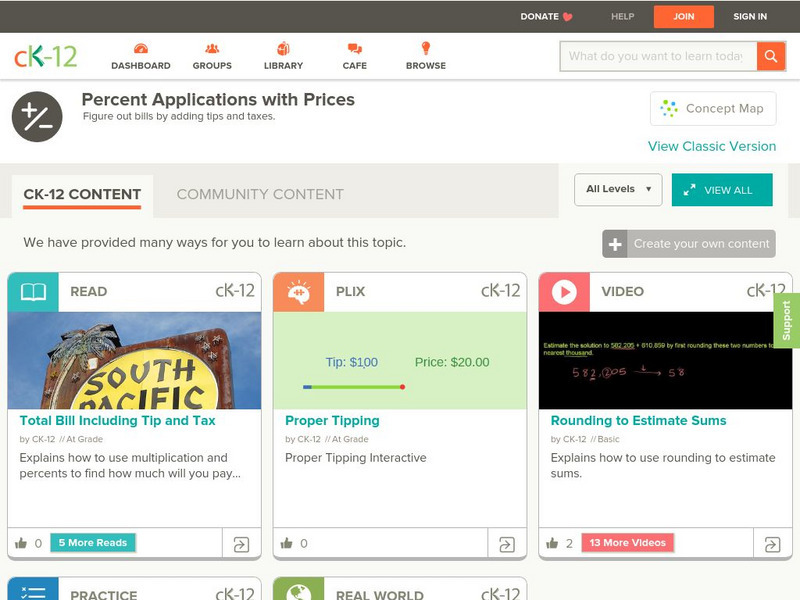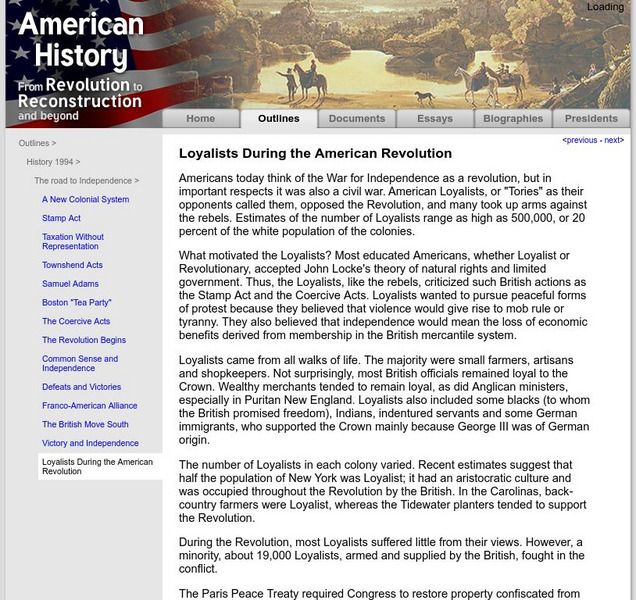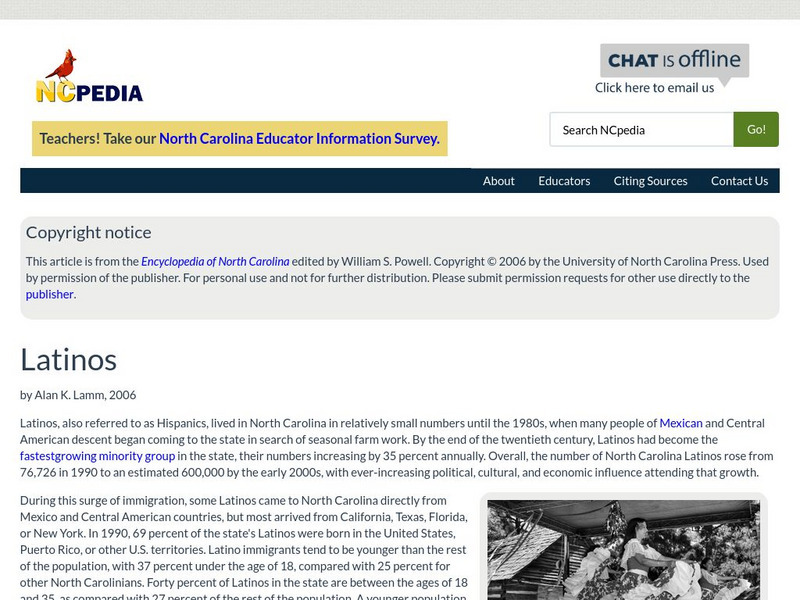The Math League
The Math League: Percent and Probability: What Is a Percent?
This site defines a percent, explains it as a fraction and decimal, and shows how to estimate a percentage.
Mangahigh
Mangahigh: Ice, Ice, Maybe: Fast Estimation With Basic Number Calculations
Practice your arithmetic skills as you estimate the answer to questions involving addition, subtraction, multiplication, and division. Includes whole numbers, fractions, and percents. As you answer questions, you guide penguins across an...
McGraw Hill
Glencoe: Self Check Quizzes 1 Estimating Fraction Sums and Differences
Use Glencoe's randomly generated self-checking quiz to test your knowledge of estimating sums and differences. Each question has a "Hint" link to help. Choose the correct answer for each problem. At the bottom of the page click the...
US Census Bureau
Us Census Bureau: International Data Base
Statistical data on the population and demographics of 228 countries, including change, sex ratios, life expectancy, and percent with HIV/AIDS. There are also detailed explanations of the means of producing these statistics. It is...
CK-12 Foundation
Ck 12: Arithmetic: Tip Estimation
[Free Registration/Login may be required to access all resource tools.] In this lesson students estimate 15% of a total price to estimate tips. Students examine guided notes, review guided practice, watch instructional videos and attempt...
CK-12 Foundation
Ck 12: Arithmetic: Prices Involving Sales Tax
[Free Registration/Login may be required to access all resource tools.] Have you ever had to calculate a tip in a restaurant? Figure out the amount with taxes and estimate appropriate tips.
TeachEngineering
Teach Engineering: A Chance at Monte Carlo
At its core, the LEGO MINDSTORMS product provides a programmable microprocessor. Students use the EV3 processor to simulate an experiment involving thousands of uniformly random points placed within a unit square. Using the underlying...
Shmoop University
Shmoop: Ratios & Percentages: Estimating Percentages
The mathematics tutorial examines how to estimate percentages using shortcuts. Students learn about the concept through notes, examples, and practice problems.
CK-12 Foundation
Ck 12: Arithmetic: Total Bill Including Tip and Tax
[Free Registration/Login may be required to access all resource tools.] In this lesson students calculate total bills including tips and taxes. Students examine guided notes, review guided practice, watch instructional videos and attempt...
CK-12 Foundation
Ck 12: Arithmetic: Decimal Addition
[Free Registration/Login may be required to access all resource tools.] Add and subtract decimals with and without rounding
TED Talks
Ted: Ted Ed: What Would Happen if You Didn't Sleep?
In the United States, it's estimated that 30 percent of adults and 66 percent of adolescents are regularly sleep-deprived. This isn't just a minor inconvenience: staying awake can cause serious bodily harm. This video and guide shows...
Council for Economic Education
Econ Ed Link: u.s. Senate Mulls Over Bankruptcy Legislation
During the week of September 20, 1998, the US Senate agreed to debate a bill (S 1301), intended to make it more difficult for people of means to use bankruptcy to walk away from debt. Those who could pay at least 20 percent of their...
A&E Television
History.com: How Levee Failures Made Hurricane Katrina a Bigger Disaster
By the time Hurricane Katrina made landfall near Buras, Louisiana early on the morning of August 29, 2005, the flooding had already begun. In all, levees and floodwalls in New Orleans and surrounding areas fell in more than 50 locations...
University of Groningen
American History: Outlines: Loyalists During the American Revolution
Americans today think of the War for Independence as a revolution, but in important respects it was also a civil war. American Loyalists, or "Tories" as their opponents called them, opposed the Revolution, and many took up arms against...
Countries and Their Cultures
Countries and Their Cultures: Swazi
"Swazi" refers to the nation, tribe, or ethnic group, or an individual, "siSwati" to the language. SiSwati speakers are found in Swaziland, South Africa, and Mozambique. Within Swaziland, the population (the great majority of which is...
A&E Television
History.com: How Interstate Highways Gutted Communities and Reinforced Segregation
America's interstate highway system cut through the heart of dozens of urban neighborhoods. Congress approved the Federal-Aid Highway Act of 1956, authorizing what was then the largest public works program in U.S. history. It promised to...
A&E Television
History.com: What's So Unlucky About the Number 13?
Unexplained fears surrounding the number 13 can be traced to ancient times. Researchers estimate that as many as 10 percent of the U.S. population has a fear of the number 13, and each year the even more specific fear of Friday the 13th,...
Sophia Learning
Sophia: Determining Uncertainty
Take a look at this presentation which provides examples on how to determine the uncertainty in a measurement.
State Library of North Carolina
N Cpedia: Latinos
Latinos, also referred to as Hispanics, lived in North Carolina in relatively small numbers until the 1980s, when many people of Mexican and Central American descent began coming to the state in search of seasonal farm work. By the end...
Sophia Learning
Sophia: Determining Uncertainty: Lesson 2
This lesson gives examples that will teach the learner how to determine the uncertainty in a measurement. It is 2 of 4 in the series titled "Determining Uncertainty."
Sophia Learning
Sophia: Introduction to Uncertainty: Lesson 2
This lesson explains why/how uncertainty is used and why it is important to be aware of it when making measurements. It is 2 of 4 in the series titled "Introduction to Uncertainty."
Sophia Learning
Sophia: Introduction to Uncertainty: Lesson 4
This lesson explains why/how uncertainty is used and why it is important to be aware of it when making measurements. It is 4 of 4 in the series titled "Introduction to Uncertainty."
Sophia Learning
Sophia: Introduction to Uncertainty: Lesson 1
This lesson explains why/how uncertainty is used and why it is important to be aware of it when making measurements. It is 1 of 4 in the series titled "Introduction to Uncertainty."




















